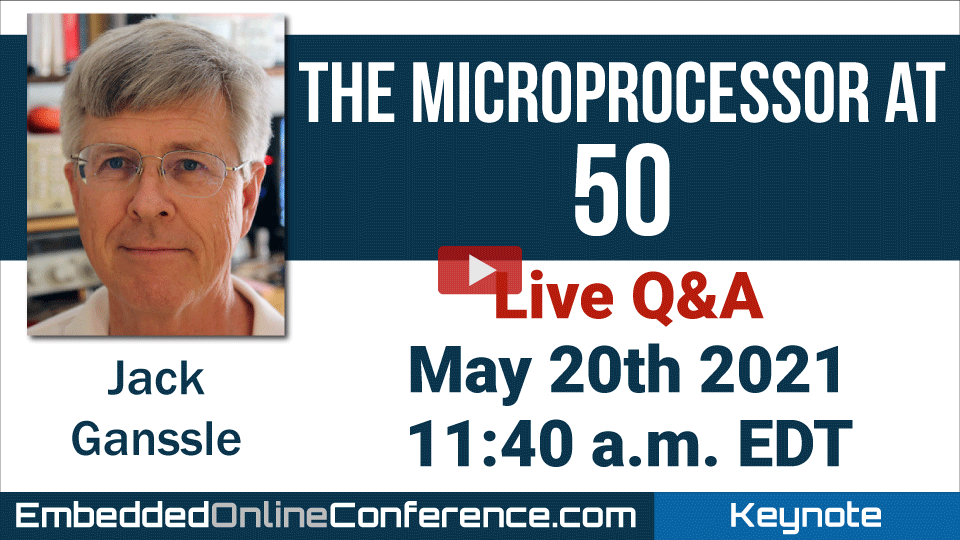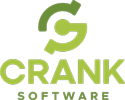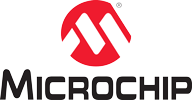Home > On-Demand Archives > Q&A Sessions >
Live Q&A - The Microprocessor at 50
Jack Ganssle - Watch Now - EOC 2021 - Duration: 52:32

FWIW: I get them regularly and recently.
Wow the Q/A is even better than the keynote that was great! Great advice! 1: Save your money to avoid being a "slave to the man" and work at small companies. 2: Mitigate against the age of constant disruption by having a weekly time of new tech learning. 3: Be both Broad and Deep (avoid narrow only obsolescence - Lunar Tire Expert dilemma). And I agree with you on Jean's documentation. I still recommend Jean's books to new Engineers to see how to do it and keep them on my own shelf.
Great questions!
As a long-time follower of your work, I greatly enjoyed your presentation. I feel like we are so often caught up in the daily struggles to produce/create/manage, that it is easy to lose sight of the big picture. You do a wonderful job of bringing the wonders of that big picture into focus. An appreciation of how we got here is crucial to appreciating where we are.
I find it interesting how history repeats itself. We have tera and petabytes of information and/or storage. Yet, today, I feel I see more and more where we try to reduce the code due to security and speed. Your thoughts?
Data is growing exponentially; code isn't as we have limited bandwidth from our brains to the IDE. Security means, in part, having code that is tractable yet packages like Windows are enormous... with lots of vulnerabilities. "They" want more functionality but are unwilling to pay for security. This has to change.
TRUTH. Then, they scream when they are breached and have 100 phone apps of which they use 1%. Same with computers. How many unnecessary apps are on them that we don't use and they come with?
Hi Jack, thanks for the talk. I asked this on the Q&A but Jacob didn't get to it. What do you think about the sheer electronic waste that the consumer electronics industry generates? How do you think we can make technology a force for good in the world? -- from an idealistic young engineer
I'm not optimistic. The 2nd law of thermodynamics works against us - it's just too costly to recover much of this material. When we toss our phones every couple of years we do a disservice to the environment. And manufacturing this stuff is dirty - TSMC uses gobs of water yet Taiwan is having a water crisis.
Can you provide a list of the websites you study and books to buy? Thank you.
A very interesting and well considered walk down history lane. (some of which I experienced first hand as well). Thank you for a great presentation.
Bob in Cleveland, OH
Jack is a true gem for the industry. I totally enjoyed his talk (I always enjoy all his talks). Incredibly interesting and it's impressive how computing evolved in the 100 or so past years. Thanks for doing this.
This was truly an amazing journey, your storytelling, research and humor throughout the presentation made it a very pleasant experience. Thank you!!
Jack,
I always enjoy listening to you (or reading) on any topic you cover. Your wealth of knowledge and expertise shines through every time. This one was no different; Great presentation!
I still have a pair of 8" floppy drives I bought there in the late 70s... sitting in the closet in this room.
8" floppies! I bet you could store hours of HD video on them... or something!
IIRC, the capacity (in CP/M) was <256kbytes.
As I recall NEC came out with the 765, one of the first floppy controllers. It was a bear to use and the datasheet was wildly inaccurate.
My Tarbell S-100 FDC board uses the WD 1771; also a very early LSI implementation.
I think the single density ones were 80 KB, at least when they first came out.
Would that surplus store have been Eli Hefron's ? From another antique nerd...
Could be - it was so long ago I don't remember!
12:42:58 From Leandro Pérez : More than a question... A remember... With your talk I remembered my first electronics project... My first calculator using many TTL IC to add and substract... I made it in 1996 in the school... In I remember that I create a robotic hand controlled by a 8085 microprocesor with a EEPROM memory 27C08... What memories! I put the photo of the my calculator from 1996 12:43:23 From Leandro Pérez : I put the photo in my profile 12:43:47 From afwaanquadri : Question:What is your favourite programming language? 12:43:57 From Paul : What is Jack's favorite microprocessor? 12:44:37 From mzaleski : Great presentation. Ubiquitous embedded microprocessors have resulted in the emergent capability of ubiquitous communications. Would you care to expound on some of the near-term implications of billions or trillions of embedded devices connected to the cloud? 12:46:03 From Jeremy Erdmann : I've been doing embedded for 21 years. In my early days, at my first ESC, you were one of a few "rock star" must see speakers. What advice do you have for those who are just getting started in our industry? 12:46:30 From Jay : Where will the future of microcontrollers take us? I have started noticing the merging of programmable logic/pseudo FPGA fabric into micros (such as the RP 2040 with PIO-programmable IO and others). Is this the future? 12:47:01 From Jeremy Schreiber : The Firmware Handbook was one of the first books I read at the start of my career and it really changed the way I wrote embedded code. I just wanted the opportunity to say thanks!!! 12:47:34 From Will Hsiung : Do you normally buy the latest and greatest when it comes to personal electronics like computers and phones? 12:48:25 From Clayton Pannell : Jacob is now a confirmed member of the Rust Evangelism Strikeforce 12:48:41 From Alvaro Muro(Bilbao) : Could you please recommend any good sources to study on monday mornings? Thanks! 12:48:47 From Dave Nadler : He changed his hair-color to match. 12:49:01 From Al Anway : where's the "like" button on this thing? 12:49:02 From Marinna Martini : Thank you for the Embedded Muse, it continues to be a must read. 12:49:07 From Meenal Burrows : Haha Clayton 12:50:52 From Bob Dowling : +1 for the venerable MC68HC11 12:51:12 From Meenal Burrows : Ah brilliant, an FPGA soft core question! 12:51:25 From Lee Thalblum : And another +1 for the 68HC11 12:51:40 From Clayton Pannell : <3 for the 68HC11, my first MCU 12:51:49 From Vim : I second that 12:52:35 From Jeremy Erdmann : I still have my HC11 datebook. Fit in your shirt pocket 12:53:42 From Yuriy Kozhynov : What about quantum computing? Is it a way to go in near future? 12:54:06 From Bob Dowling : HC11 EVB's with BUFFALO in EPROM 12:54:24 From Steve Wheeler : What technology would you like to see that we don’t have yet? 12:54:40 From Piotr Zdunek : Hi Jack! I'm a bit late for the meeting, I'm not sure if this question has been already asked, if yes then sorry. What do you think abour RISC-V microprocessor? 12:56:40 From Jean Labrosse : Jim Sibigtroth (sp?) wrote that 68HC11 manual, I had the pleasure of meeting Jim years ago. The nicest guy. I especially LOVED the way he had diagrams for everything and a great description of the submodules. I used the Input Captures/Output Compares. Probably the most useful subsystem. 12:59:16 From David pastl : Sorry, I'm having audio problems 12:59:25 From DevBox : RISC-V any thoughts.. 13:00:57 From Bob Dowling : Jean, we use TI C2000 DSPs in our power supplies, and the PWM peripherals in that family are really amazing when you look back at the timer(s) on the HC11. 13:01:16 From Will Hsiung : Thanks Jack for the answer. A lot from my work normally don’t keep up-to-date with new products. 13:01:54 From Meenal Burrows : Jack, what do you think about the sheer electronic waste that the consumer electronics industry generates? How do you think we can make technology ain the world? -- from an idealistic young engineer 13:02:20 From busa2191 : Jack how do you keep up on the actual processors as you say you learn by doing. 13:02:50 From Michael Kirkhart : Yes - I have a weakness for books (as well as embedded development boards and software defined radios) :) 13:02:59 From Davy Baker : How do your two approaches differ ? 13:05:22 From busa2191 : Jack do you have your list of sources of information on your web site can't see it. 13:05:37 From Rob Meades : When do you think we'll be able to dispense with humans writing and debugging the code? I don't think we're so good at it :-). 13:06:41 From Jakub Telatnik : Good question, Tim! 13:06:54 From mzaleski : Regarding quantum computers breaking our encryption: It will break many current existing encryption systems. Crypto-geeks are developing new algorithms for current processors that will be quantum-hard. 13:07:20 From Davy Baker : What would you tell yourself 2 years ago ? 13:09:24 From Leandro Pérez : What do you think about the microprocessor in 2071? 50 years after 13:10:12 From Lee Thalblum : Jack, the correct answer to Jacob's question is: "My lawyer told me not to answer that". 13:10:24 From Jeremy Schreiber : You mentioned in your talk that EEs were the ones doing the programming "back in the day". Given how complex software development has become and how the field has matured, do you think that EEs can still be effective as both EEs and software developers? 13:12:31 From Jean Labrosse : Jack, how do you feel about documentation and specifically how many programmers stop at (barely) documenting the APIs? 13:17:51 From Leandro Pérez : Thanks 13:19:31 From Rob Meades : Thanks, that's the right answer. 13:19:38 From afwaanquadri : That is comforting :D 13:24:45 From Meenal Burrows : Jack, what do you think about the sheer electronic waste that the consumer electronics industry generates? How do you think we can make technology a in the world? -- from an idealistic young engineer 13:25:04 From Michael Kirkhart : LOL on the write-only registers! 13:25:08 From Piotr Zdunek : I worked at several big tech companies in Automotive indistry and I see that no one cares about the software quality, Do you have any tips on how to convince managers that the software quality matters? 13:25:13 From afwaanquadri : EEs can learn software but not the other way around :D 13:25:23 From Raul Pando : Good question @Meenal 13:26:05 From Charles Miller : @Michael, google "Signetics write-only memory datasheet" A classic! 13:26:08 From Christian : Speaking of small teams... Any advice for those of us working as the sole embedded engineer at the company? 13:26:09 From DevBox : SW is eating the world 13:26:16 From James Kincell : When you ask Meenal's question, also, what about the amount of planned obsolescence that is sadly present, and also, the high reliance on the cloud, meaning if that cloud ceases to exist, your tech is a brick! 13:26:33 From Meenal Burrows : Thanks @Raul, don't think it's going to be answered though! 13:26:47 From mzaleski : Re write-only registers: I always joke that purchasing teams have outgoing-only phones 13:27:16 From Michael Kirkhart : Link for Signetics write-only memory: https://www.baldengineer.com/wp-content/uploads/2018/02/25120-bw.pdf 13:29:54 From Jeremy Schreiber : Dijkstra said that the #1 skill for programmers was the ability to write effectively. 13:30:33 From Michael Kirkhart : We need the PowerPoint compiler! 13:30:35 From gmccormack : Tried retirement, didn't fit, not enough cool, working at GREAT company, lots of cool 13:30:36 From Steve Wheeler : There’s an old joke that if you make it possible for programmers to program in English, you will find that programmers can’t write in English. 13:32:06 From afwaanquadri : Thanks Jack for your contribution! 13:32:11 From Sam : thank you. 13:32:12 From Gerhard : Thanks! 13:32:17 From Vim : Thanks Jack! 13:32:24 From Juan : thanks! 13:32:25 From Will Hsiung : Thanks Jack! 13:32:26 From Thomas LeMense : Thank you, Jack, for everything you do! 13:32:27 From David Pastl : Thanks Jack! 13:32:35 From Steve Wheeler : Thanks, Jack, and thanks to all the organizers and presenters. 13:33:10 From Tom : Thank you Jack! 13:33:16 From Rocco Brandi : thanks ! 13:33:24 From DevBox : Thanks! 13:33:45 From Charles Miller : Thank you!


























That reminds me, I haven't received any Gansssle embedded newsletter for a long time now... is it just me?